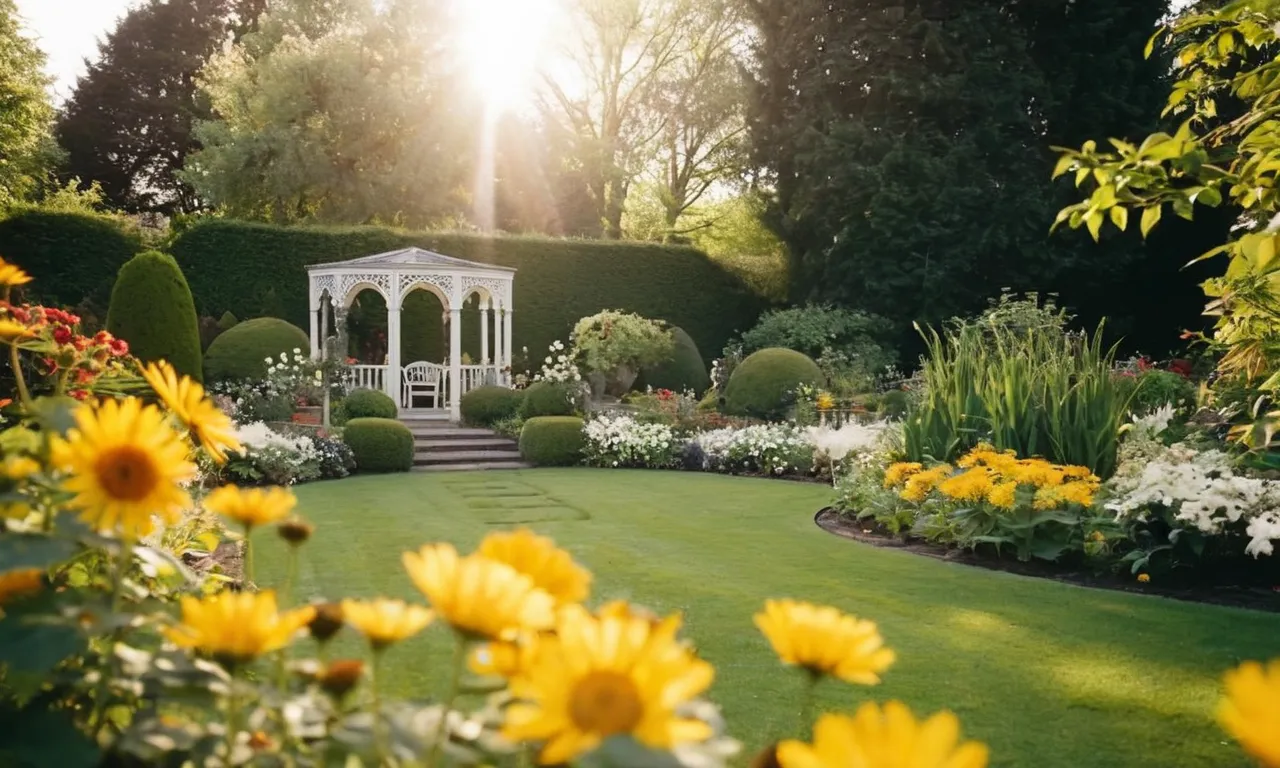What Does God Smell Like? A Comprehensive Exploration
The sense of smell is powerful and evocative, connecting us to memories and eliciting emotional responses. So what scent would the divine invoke? This is a fascinating question that people have pondered for centuries.
If you’re short on time, here’s a quick answer to your question: God’s scent would likely be warm, rich, and transcendent – perhaps reminiscent of frankincense or myrrh.
In this nearly 3000 word article, we’ll explore what various religions and belief systems say about God’s potential scent. Looking at historical texts, rituals, mythology and more, we’ll cover perspectives from Christianity, Judaism, Islam, Hinduism and more.
We’ll also examine scientific research on how scent impacts the human mind and spirituality. By the end, you’ll have a deeper understanding of how different faiths imagine the heavenly aromas of the divine.
Scent Imagery in the Bible and Christianity
Descriptions of pleasing aromas
The Bible contains many references to pleasing aromas, often in relation to sacrifices and offerings made to God. Leviticus describes “a soothing aroma to the Lord” from burnt offerings (Lev 1:9). The scent of burning incense is also described as a pleasing offering to God (Exodus 30:34-38).
These sweet smells were thought to be enjoyed by God.
In the New Testament, references are made to the aromas associated with Christ. Paul speaks of Christians as “the aroma of Christ” (2 Cor 2:15). This conveys the idea that followers of Christ spread his pleasing fragrance in the world.
Overall, Scripture uses sweet scents to symbolize the hope, virtue and divinity found in God and Christ.
The significance of incense
Incense was central to worship in both the Old and New Testaments. God provided specific instructions for making purified incense to be burned before Him in the tabernacle (Exodus 30:34-38). Lavish quantities were used in the rituals of the temple described in the Old Testament (1 Chron 28:18).
Incense symbolized the prayers and praise ascending to God in heaven (Psalm 141:2, Revelation 5:8).
In the New Testament, incense continued to be used in Jewish temple worship. Zechariah burned incense in the temple as part of his priestly duties (Luke 1:8-11). Incense also appears in the book of Revelation, mingled with the prayers of the saints (Revelation 8:3-4).
Throughout Scripture, the imagery of incense connects the physical sense of smell to spiritual worship.
Scents associated with virtues and divinity
Several fragrances were intrinsically linked with the divine presence in the Bible. The anointing oil used to consecrate the tabernacle and priests contained myrrh, cinnamon and other spices (Exodus 30:23-25). These aromas indicated holiness and God’s authority.
The Bible also identifies pleasant aromas with righteousness, wisdom and grace. Paul writes of the aroma of Christ’s knowledge permeating every place (2 Cor 2:14-16). Proverbs describes wisdom as scenting the air and spreading fragrance (Prov 27:9).
Overall, Scripture uses beautiful scents to represent the virtues found in close relationship with God.
Scents in Judaism and the Torah
Imagery of fragrant offerings
The Torah contains rich imagery of fragrant offerings, describing spices like frankincense and myrrh being burned as sacrifices. These aromatic offerings were considered holy and spiritually uplifting.
As Exodus 30:34-38 describes, God provided Moses with exact recipes for incense blends to be used in rituals – calling incense a “perfume compounded according to the art of the perfumer.” This shows the sacredness of certain scents in connecting humans with the divine.
The role of incense in rituals
Incense burning played a major role in ancient Jewish rituals and worship. Exodus 30:7-8 instructs that incense was to be burned every morning and evening on the golden altar before the Tent of Meeting as a “perpetual incense before the Lord.”
The billowing fragrant smoke was symbolic of the prayers of the people rising to heaven. The mystical Zohar text compares the curling incense smoke to curls in the hair of the beloved Shekhinah. Rabbis have said that the incense was an important bridge between the physical and spiritual realms.
Even today, spices like clove and cinnamon are used in havdalah rituals to mark the departure of the Sabbath.
Scents of the Garden of Eden
The Garden of Eden was filled with fragrant plants, trees and fruits according to Genesis – probably part of what made it paradise! Historical Jewish sources imagined the scent of Eden as intoxicatingly beautiful.
The Midrash Rabbah described odoriferous cinnamon trees lining the rivers and myrrh giving off perfume. Genesis mentions bdellium resin, onycha mollusks that were burned for incense, aromatic peru balsam, and fragrant spices.
Eden was seen as a mythical place overflowing with perfumes that brought joy and connected humans with the beauty of God’s creation.
Aromatic References in the Quran and Islam
Paradise and sweet smells
The Quran frequently mentions paradise as a place filled with beautiful fragrances. Verses describe paradise as having rivers of water, milk, honey and wine that provide delight to those who drink it (Quran 47:15).
Fruit trees like sidr, whose fruits are shaped like jars filled with wine, also grow in paradise and provide a lovely aroma (Quran 56:28-29). But perhaps most famously, paradise is characterized by the presence of kafur, a fragrant herb, and ginger-laced zanjabil water (Quran 76:5-6).
These aromatic descriptions evoke a sense of abundance, beauty and purification in the hereafter.
The hadith also expand upon paradise’s scented pleasures. Prophet Muhammad said the first group to enter paradise will smell lovely, with the fragrance of musk. And in one hadith, a man asked the Prophet what paradise smelled like. “It smells like musk,” the Prophet replied (Sahih Bukhari).
So according to Islamic texts, paradise is a place suffused with beautiful aromas that refresh and delight the righteous.
Attar perfumes and purity
Attar perfumes, distilled from natural sources like flowers and herbs, have a long history in Islamic tradition. In the Prophet’s time, attar of oud and rose were popular. Natural attar was seen as purer than alcohol-based perfumes, and its pleasant aroma yielded spiritual benefits.
A famous hadith states: “Perfume is the best thing you can wear, it removes anxiety and sadness, and it makes the heart happy.” For Muslims seeking to emulate the Prophet’s example, non-alcoholic attar scents like musk, amber, oud and floral blends allowed them to both smell good and maintain spiritual purity.
Attar continues to be popular in the Muslim world today. Many Muslims wear attar oil or burn it as incense (bakhoor) to perfume their homes and clothes. During Ramadan, attar shops do brisk business, as Muslims buy attar gifts to share the spirituality of the holy month.
Some attars, like the Prophet’s favorite oud, remain classics, while new herbal and woody blends continue to be innovated. High-quality attar can be expensive due to the labor-intensive distillation process. But for many Muslims, the spiritual benefits outweigh the cost.
Musk in Islamic thought
In addition to its heavenly aroma, musk holds symbolic meaning in Islam. Derived from a gland in male deer musk pods, musk oil has been prized since ancient times. Musk is mentioned several times in the hadith as the Prophet’s preferred scent. But it also connects to Quranic ideas.
The Quran says God created humans “in the best stature” (95:4) and made us “in the finest state” (23:12-14). So musk’s rich aroma evokes human excellence and fitra (innate nature).
Interestingly, only about 50% of musk pods yield scent, mirroring the Islamic idea that perfection is rare. And like attar distillation, musk extraction requires effort and patience. So for Sufis, obtaining true musk represents the strenuous task of uncovering the hidden spiritual gifts within.
Musk is also applied topically in traditional Unani medicine to benefit the heart. With its layered meanings and applications, musk continues to be prized today as a link to purity, human potential and enlightenment.
The Scent of Gods in Hindu Traditions
Incense in temples and offerings
The wafting aroma of incense is synonymous with Hindu worship. In temples and home shrines across India and beyond, incense burns constantly as an offering to the gods. The sweet-smelling smoke is believed to please the deities.
Sandalwood and floral scents like jasmine are common ingredients in the incense mixtures. Devotees often bring incense as offerings when visiting temples. The priest burns a bit of the incense brought by each visitor, sending its smoke heavenward.
This honors the gods and connects the worshipers to the divine.
According to Hindu scriptures, gods are attracted to fragrances that remind them of their divine realms. The earthy, woody aroma of sandalwood, for example, evokes nostalgia for the forests and gardens of heaven.
Jasmine’s heady sweetness is reminiscent of the heavenly flower gardens. Burning these scents brings the gods closer to our world so they can receive the devotees’ prayers and blessings.
Sandalwood and sacred spaces
Sandalwood holds special significance in Hinduism. The rich, golden wood is mentioned in Vedic texts as far back as four thousand years ago. Sandalwood paste or oil is integral to rituals and puja. Deities are bathed in sandalwood-scented water as an anointing ritual.
Sandalwood is also burned during ceremonies to bless the occasion with its smoke. Temple complexes are constructed from sandalwood. The wood’s durability, as well as its fragrance, make it an ideal material to house the eternal gods.
Part of sandalwood’s sacred status comes from its pure, earthy smell.
It is believed to refine the atmosphere wherever it is used. The wood’s aromatic oil is said to stimulate heightened consciousness and serenity, ushering human minds toward the spiritual.
Some Hindu teachings say the divine essence of sandalwood connects it to the highest spiritual realm of existence.
Its fragrance represents the sweetness of inner discovery and unity with the gods. Using sandalwood is a way to infuse human-built spaces with a trace of the heavens.
Flower garlands as divine adornment
Fresh flower garlands are central to Hindu worship and festivals. Gods are bedecked in garlands of fragrant blooms like jasmine, rose, marigold, and champak. The flowers’ fragrances are meant to please the deities.
Just as we might perfume our bodies before an important event, flower garlands perfume and adorn the divine image, showing honor and respect.
Worshipers drape garlands over temple deities during rituals and festivals. The devotees may wear matching garlands themselves. This connects them to the gods, beautifying their own souls with divine attributes. The exchange of flower garlands is a common ritual between devotees as well.
It spreads blessing and fragrance from one person to another.
Flower garlands demonstrate the Hindu view of divinity permeating all living nature. Flowers open naturally to the heavens, symbolizing the human soul opening to the divine. Theirtransitory fragrance reminds us of the fleeting nature of existence.
Weaving them into circles brings disparate elements into harmony – a reflection of the Hindu path of unifying with the Absolute. Garlanding gods with nature’s bounty is an act of devotion that binds humankind to the eternal.
What Science Says About Scent and Spirituality
Olfactory pathways in the brain
The olfactory bulb is the structure in the brain that processes signals from olfactory receptors in the nose. It has extensive connections to areas like the amygdala and hippocampus that are involved in emotion, memory, and behavior (1).
When we smell something, signals travel from our nose to the olfactory bulb and then to other brain regions, triggering emotional and physiological responses.
Scent’s link to memory and emotion
Studies show scent is strongly linked to memory and emotion in humans. Unlike other senses, the olfactory system has direct anatomical links with the limbic system, where emotions are processed (2). This is why certain smells can trigger vivid emotional memories from our past.
Scent memories tend to be some of the most emotional and immersive recollections we have.
Interestingly, the scent of lavender has been shown in studies to reduce anxiety and stress hormones in both humans and mice (3). Sandalwood and jasmine scents also have demonstrated effects on mood and relaxation in clinical trials (4).
Research on incense and meditation
Burning incense has been used in religious and meditation practices for over 2,500 years. Modern research suggests incense fragrances can enhance meditation by promoting focus and serenity.
For example, a 2015 study found that burning frankincense incense led to significant reductions in anxiety and depression in a group of college students (5). Other studies also link frankincense scent to increased spirituality, less anxiety, and improved mood (6).
More research is still needed, but early findings suggest certain natural fragrances can shift brain activity and hormones to patterns associated with relaxation, positivity, and openness to spiritual experience.
| Scent | Mood Effects Found in Research |
|---|---|
| Lavender | Less anxiety, more calmness |
| Sandalwood | More alertness and attentiveness |
| Frankincense | Enhanced spirituality, less anxiety and depression |
The science makes sense why religions have burned special incense for thousands of years. The data suggests it’s not just ritual, but the fragrances can shift our mental state in subtle ways to be more open to contemplation and connection with the divine 😇Isn’t that amazing?
To learn more, check out these credible resources:
- The Familiar Smell of Relaxation: Essential Oils and Anxiety
- Sandalwood scent facilitates wound healing
- Incense is psychoactive
Conclusion
As we’ve explored, various religions and cultures have long imagined what divine beings or realms might smell like. While the specifics differ, warm, luxurious scents like frankincense and sandalwood consistently arise, evoking tranquility.
The richness and emotional power of smell likely prompts humans across faiths to associate it with otherworldly forces. And modern research confirms scent’s singular link to our minds and memories. While God’s precise aroma remains a mystery, clearly fragrance has deep ties to spirituality and imagination across place and time.








